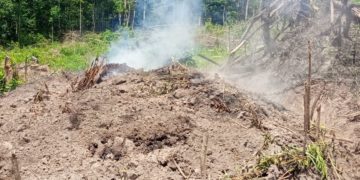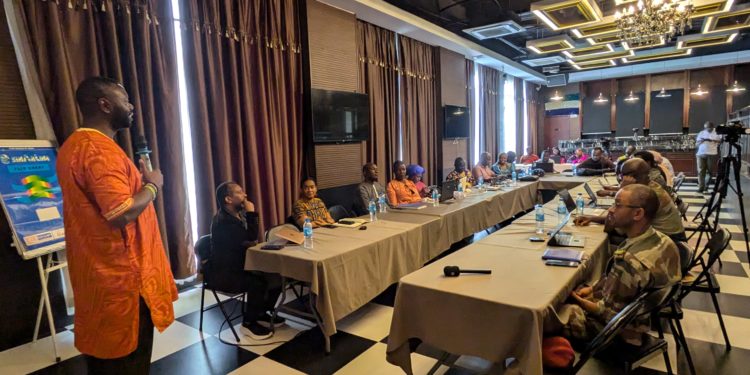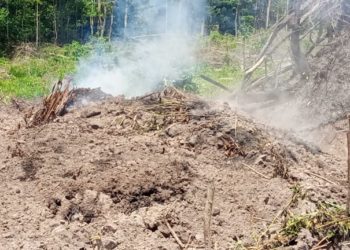By Watta Koroma
The National Public Health Agency (NPHA), in collaboration with the Sierra Leone Journal of Biomedical Research (SLJBR), the African Field Epidemiology Network (AFENET) and the United States Centers for Diseases Control and Prevention (US CDC), have concluded a five-day training workshop designed to enhance the capacity of junior researchers who are graduates of the Sierra Leone Field Epidemiology Training Program (Sierra Leone FETP).
The training, which ran from July 15th to 19th, 2024 at the Atlantic Lumley Hotel in Freetown, was aimed at capacitating the participants on skills to produce quality articles for publication in scientific journals.
The participants comprised principal investigators on various field projects conducted through the Sierra Leone FETP and reviewers from academia and government ministries and agencies who are working in the field of biomedical research. The sessions were also designed to review articles submitted by the participants for consideration for the upcoming edition of the journal.
SLJBR, established in 2009, is a periodic publication of the College of Medicine and Allied Health Sciences (COMAHS) of the University of Sierra Leone. It is the leading and only accredited and peer reviewed journal in the country.
Prof. Alhaji Umar Njai, Managing Editor of the Journal, said the workshop was the latest in a series of training that began in 2021 with the goal of enhancing capacity of researchers to publish their findings in academic journals. He said the training also provided a platform to encourage Sierra Leonean researchers to utilize SLJBR to gain worldwide recognition for their work.
“In Sierra Leone, we have a lot of data but we are not publishing,” said Njai, an epidemiologist and Pan-Africanist who is also Founder and Chief Strategist of Project 1808 and the Koinadugu College. He noted that not only does SLJBR provides free publication opportunity and unhindered access to its articles, it is also an opportunity to document local research.
Njai added that the training offered an opportunity to review the reviewer pool of the country.
The training was conducted with support from the NPHA’s partner AFENET, which is supported by the USCDC.
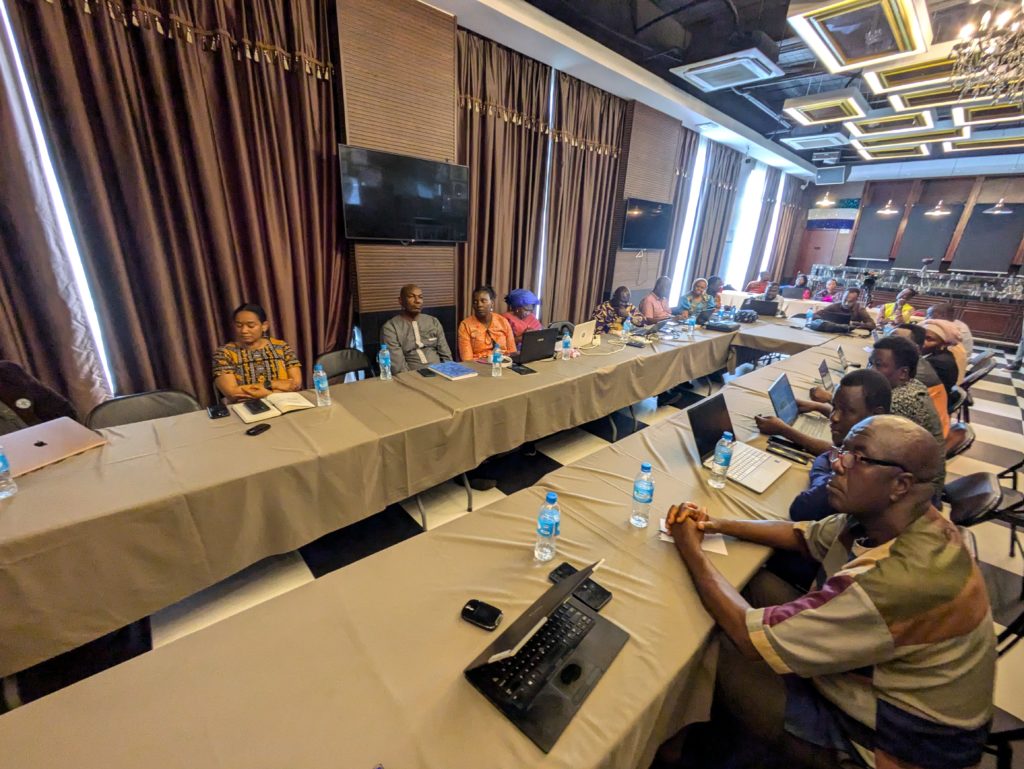
AFENET is a not for profit Non Governmental Organization which is dedicated to improving health outcomes of people in collaboration of health ministries across Africa. It does so through strengthening of the capacity of public health institutions for preparedness and response through technical training programmes.
Dr Gebrekrstos Negash Gebru, the Head of AFENET in Sierra Leone and the Resident Advisor of the Sierra Leone Field Epidemiology Training Program (SLFETP), said the training aims to strengthen global health security objectives in Sierra Leone through research and publication, which is the core mandates of AFENET in Sierra Leone.
“AFENET is a technical implementing partner of the US CDC and its core functions is to support the Ministry of Health and the National Public Health Agency in building Sierra Leone’s public health workforce. So for AFENET, it helps to achieve its core mandate, particularly in research” Dr Gebru said. He added that the five-day interactive sessions proved that Sierra Leone has a new generation of scientists who can not only design and implement epidemiological studies, but also write articles to publish their work.
The organizers of the training said with the enthusiasm and body of work being of the participating authors, by the end of July, 13 papers would have been ready for publication. And by the end of the year, SLJBR is expected to move from two to over four monthly editions.
Dr Mohamed Boie Jalloh, a member of the Sierra Leone Armed Forces Medical Team and Director of Research and Policy at NPHA, who is also deputy Editor of SLJBR, served as a reviewer. He hailed the quality of work demonstrated by the authors, attributing it to the “quality work” being done under the EFTP programme.
“This is a reflection of the quality work that the faculties at the EFPT programme are delivering,” he said.
Dr Monique Foster, Acting Country Director of US CDC, spoke about the importance of publishing in a scientific journal, noting that it renders researchers’ memories eternal.
“In Ebola times, all those (research) papers came out and there was no Sierra Leonean on those papers, even though they were doing a lot of the work.,” she said, noting that same way Sierra Leone built its public health capacity, which enabled it the country to respond to the Covid-19 pandemic, the say way it should deal the gap in scientific publications.
“You have to build that capacity to share that story yourself as well. We don’t want you to be up doing all that work and then someone write up that work for you and then someone else becoming immortal for the work that you did,” Dr Monique said.
One of the beneficiaries of the training, young female scientist Binta Bah, has two of her articles under review as part of the programme.
Ms Bah, a field epidemiologist who is the technical coordinator of the Frontline Field Epidemiology Training Progrmme in the National Public Health Agency, cited obstacles posed by family and workplace realities on her career as a female researcher. But she said the training provided her further motivation to pursue her dream in research.
“It serves as a learning process and great opportunity for me. I have learnt so much that I hope to share with my students and mentees,” said Bah.
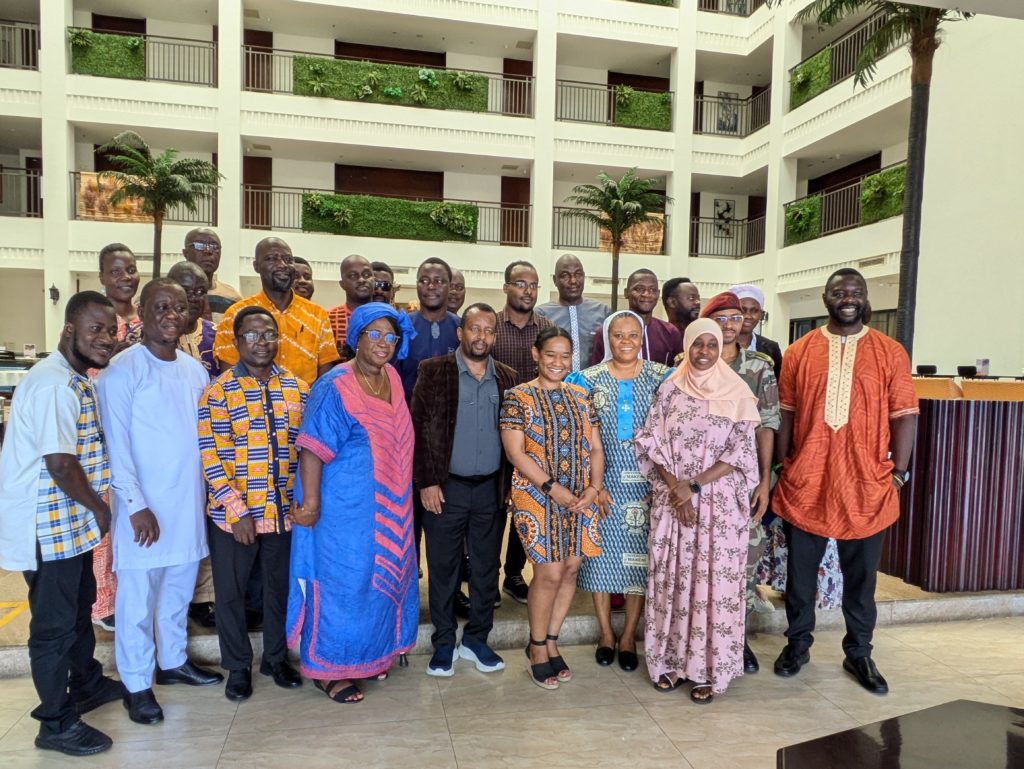
Professor Roland Sukulu, Head of the Animal Science Department at Njala University, is one of the few experienced reviewers presently in Sierra Leone. He called on fellow professors to consider investing more time in building students’ capacity to match the standard of the international authorship.
Professor Sukulu also wants to see closer collaboration between universities and government ministries, departments and agencies in the area of research.
“A lot of money is given to Sierra Leone and there is no evidence to show for it. And what is the evidence? Data. And what is missing in this country is that the universities don’t have direct link with the ministries,” he said, adding: “For every activity of these ministries, they should be providing research fund to universities, so (that) when they have a project, they go to lecturers and we start assigning our students, so that whatever work is done, there is data evidence to show that it was done.”

